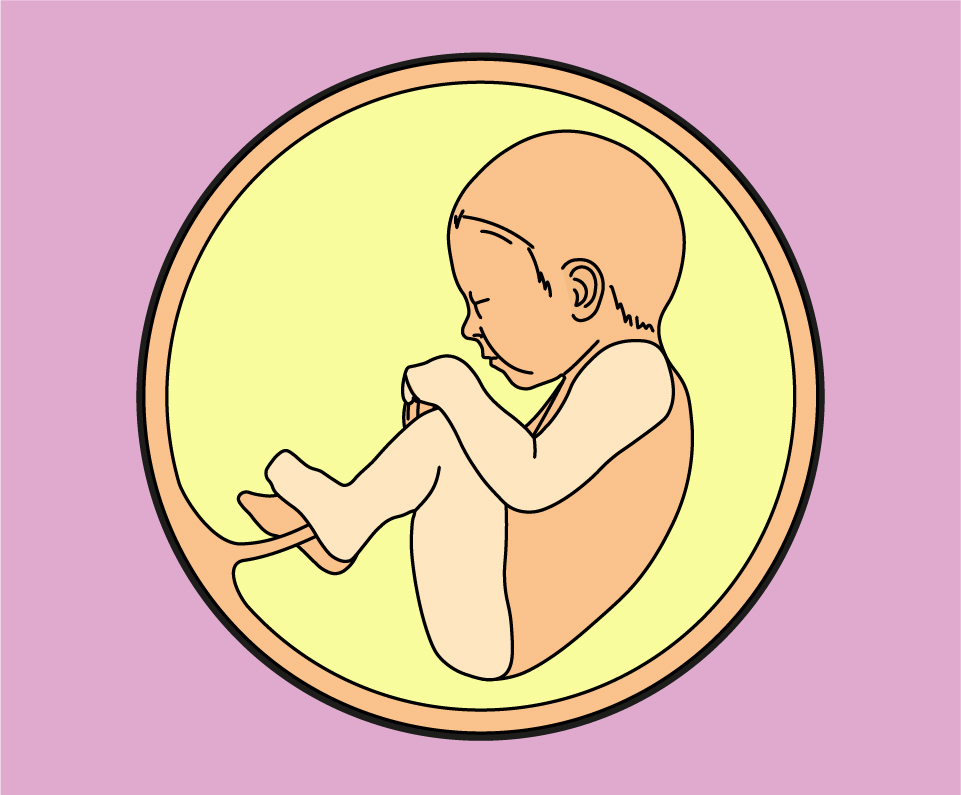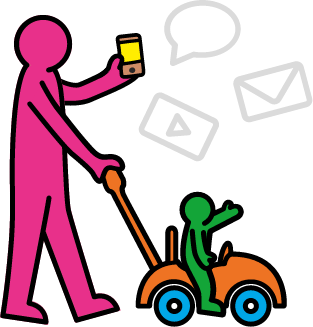Week-by-week guide to pregnancy

Third trimester
Our week-by-week pregnancy guide is full of essential information. From advice on writing a birth plan to what to expect at antenatal classes, you'll find it all here. Happy reading!
Week 38 – your third trimester
Are you going to meet your baby this week? There's a chance that you may do. Only about 5% of babies are born on their due date. Don't forget that your due date is only a guide. It's not necessarily the best day for the birth. Your baby tends to decide on that…
What's happening in my body?
At your antenatal appointment, around now, your midwife or doctor will measure the size of your bump with a tape measure, check your blood pressure and look for any protein in your urine that could indicate that you've got a dangerous condition called pre-eclampsia. This tends to strike in the second half of pregnancy or after the baby is delivered.
If you're having a planned caesarean, otherwise known as an elective caesarean, then you'll probably be booked in when you're at least 39 weeks' pregnant. This is to give your baby's lungs the best chance of being fully developed.
You'll have a chat about what might happen if you go beyond 41 weeks. There could be risks for you or the baby, so you may be offered induction. This is where labour can be brought on artificially by putting a tablet or gel in your vagina. Around 1 in 5 labours are started this way.
Tell us about your pregnancy!
We hope you're having a happy pregnancy. Please contact us through Start4Life's Facebook page and let us know how you're getting on. Have you found this website useful? Do you have any tips for other mums? Send us a picture, as we'd love to see you with your bump or your baby!
5 tips for a happy home birth
Around 1 in 50 women in England have their babies at home, supported by a midwife. Here are some tips for a happy, healthy home birth…
-
Be super-organised and have everything put aside for the big day. That includes something to wear in labour, a nursing bra, breast pads, maternity pads, and new baby essentials. Plus keep the fridge stocked up. You won't want to nip to the shops – guaranteed!
-
Plan pain relief with your midwife – will you need to buy or borrow a TENS machine, birthing ball, or aromatherapy oils? How about a birthing pool? You can arrange for your midwife to bring Entonox (gas and air) and pethidine on the day.
-
Put aside some towels and waterproof sheets – you'll need them to soak up the fluids. Worrying about the carpet should be the last thing on your mind!
-
Think about the atmosphere you'd like to create – will you burn scented candles and play your favourite music?
-
Have a bag packed just in case there are complications and you need to get to hospital in a hurry. This is more likely to happen if it's your first baby.
Flexibility's the key, whatever type of birth you choose. Ultimately your baby's the boss – and all everyone wants for you is a safe, peaceful delivery.
Third trimester pregnancy symptoms (at 38 weeks)
One new symptom this week could be frustration or even boredom. It really won't be long now, but the wait can be maddening!
Your signs of pregnancy could also include:
- painless contractions around your bump, known as Braxton Hicks contractions
- tiredness and sleeping problems
- stretch marks
- swollen and bleeding gums
- pains on the side of your pregnant belly, caused by your expanding womb (round ligament pains)
- piles
- headaches
- backache
- indigestion and heartburn
- bloating and constipation
- leg cramps
- feeling hot
- dizziness
- swollen hands and feet
- urine infections
- vaginal infections
- darkened skin on your face or brown patches - this is known as chloasma or the mask of pregnancy
- greasier, spotty skin
- thicker and shinier hair
- symptoms from earlier weeks, caused by pregnancy hormones, such as mood swings, morning sickness, weird pregnancy cravings, a heightened sense of smell, sore or leaky breasts, a white milky pregnancy discharge from your vagina and light spotting (seek medical advice for any bleeding)
Tommy's the baby charity has produced a pregnancy guide with a further list of symptoms.
Sign up for emails
Get more tips and advice on your pregnancy, baby and parenting sent to your inbox.
What does my baby look like?
Your baby, or foetus, is around 49.8cm long from head to heel, and weighs just over 3kg. That's approximately the length of 3 carrots and the weight of 3 butternut squash.
In the second trimester, your baby was covered in a furry coat of soft, downy hair (lanugo). That's mostly gone now, although some babies are born with patches here and there.
Your baby is storing up some sticky green slime in their bowels (meconium). This is made up of everything they swallow in the womb, including bits of amniotic fluid and hair. It will normally come out after the birth as the first poo. If the baby does a poo during labour, it can be a sign of distress and your baby will need close monitoring.

Action stations
Are you feeling cooped up at home? It's fine to go for a walk outside to get some fresh air, but take your notes with you just in case.
This week you could also...
You may be on your maternity leave now or about to stop work. Find out how much leave and pay you're entitled to.
It's a good time to tone up those muscles 'down under'. Gentle exercises can help to prevent leakage when you laugh, sneeze, cough or jump around on your future baby's trampoline. Get the muscles going by pretending that you're having a wee and then stop the 'urine' in midflow.
Do your best to stop smoking, give up alcohol and go easy on the cappuccinos. We know that's easy to say, but hard to do. Ask your midwife or GP for support.
We can usually get enough vitamin D from sunlight, but as we are at home a lot more at the moment, you may not be getting enough. If you're pregnant, or breastfeeding, you should consider taking a daily vitamin D supplement. It's worth checking if you're entitled to free vitamins.
Get moving! It's recommended that pregnant women do 150 minutes of exercise throughout the week. You could start off with just 10 minutes of daily exercise - perhaps take a brisk walk outside. Check out Sport England's #StayInWorkOut online exercises (scroll to the pregnancy section). Listen to your body and do what feels right for you.
Don't eat for two! Eat for you. Now you're in the third trimester, you may need an extra 200 calories a day, but that's not much. It's about the same as two slices of wholemeal toast and margarine.
Try to eat healthily with plenty of fresh fruit and veg, and avoid processed, fatty and salty foods. You may be able to get free milk, fruit and veg through the Healthy Start scheme.
How are you today? If you're feeling anxious or low, then talk to your midwife or doctor who can point you in the right direction to get all the support that you need. You could also discuss your worries with your partner, friends and family. You may be worried about your relationship, or money, or having somewhere permanent to live. Don't bottle it up – you're important, so ask for help if you need it!
Contraception
Getting pregnant again is probably the last thing on your mind! However now is a good time to start planning what type of contraception you would like to use after your baby is born. Making this decision when you're pregnant will give you one less thing to think about when you're looking after a newborn baby. Getting pregnant again could happen sooner than you realise and too short a gap between babies is known to cause problems. Talk to your GP or midwife to help you decide and get everything in place.
This week's treat
Feeling hot? It's really easy to overheat, due to your hormones, increased blood volume, and extra baggage on board. To beat the heat, buy a small bottle with a spray top from your local chemist. Fill with water and add a dash of your favourite perfume, if you can still stand the smell! Pop this in the fridge and then spritz your body when the temperature soars.
Go back to week 37
Go to week 39

Sign up now for our pregnancy, baby and toddler guide
Get personalised emails for trusted NHS advice, videos and tips on your pregnancy week by week, birth and parenthood.